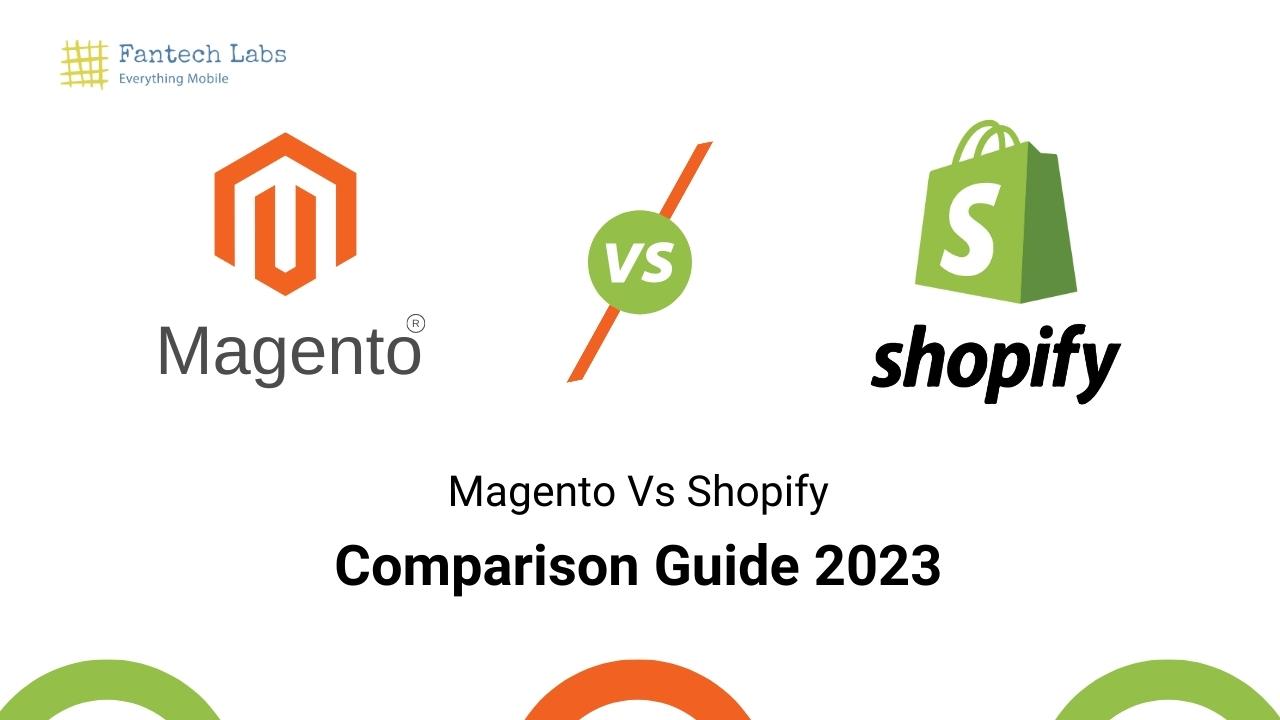Regarding eCommerce platforms, two of the most popular choices are Magento and Shopify. Both platforms have their strengths and weaknesses, and choosing the right one for your business can be daunting. In this article, we will compare Magento vs Shopify and Shopify vs Magento and provide a comprehensive guide to help you make an informed decision.
Pricing:
One of the main differences between Magento vs Shopify is the pricing model. Magento is a self-hosted platform, meaning you must host the website yourself. This can be expensive as you need to purchase hosting, domain names, and SSL certificates. Magento also requires technical knowledge to set up and maintain, which can add to the cost. On the other hand, Shopify is a fully hosted platform that handles hosting, security, and maintenance. Shopify offers a range of pricing plans starting at $29 per month for their basic plan and going up to $299 per month for their advanced plan.
Ease of Use:
Shopify vs Magento comparison reveals that Shopify is known for its ease of use and user-friendly interface. The platform is easy to set up and use, even for those without technical knowledge. Shopify offers a range of templates and a simple drag-and-drop interface that makes designing your website a breeze. On the other hand, Magento requires a lot of technical knowledge to set up and use. The platform is complex and overwhelming for those with a technical background. Magento offers a range of customization options, but this can make the platform difficult to use.
Major Features Comparison – Shopify vs Magento:
Regarding features, Magento vs Shopify comparison reveals that Magento is known for its flexibility and customization options. The platform offers a range of features, including multiple storefronts, international support, and a robust CMS. Magento is ideal for large businesses and enterprises that require complex integrations and customizations. On the other hand, Shopify offers a range of features, including a simple CMS, a wide variety of templates, and easy integrations. Shopify is ideal for small to medium-sized businesses that want a simple and easy-to-use platform.
Customization:
Customization is one of the key factors to consider when comparing Shopify vs Magento. Magento is known for its customization options. The platform offers a range of customization options, including custom themes, plugins, and integrations. Magento allows developers to customize the platform to meet their specific needs. Shopify, on the other hand, has limited customization options. The platform offers a range of templates and allows for basic customizations, but Magento is more flexible.
Support:
Support is an important factor to consider when comparing Magento vs Shopify. Magento is an open-source platform, which means that the community provides support. This can be an issue because support can be unreliable, and the company requires official assistance. However, Magento offers a range of documentation and resources to help users troubleshoot issues. On the other hand, Shopify offers reliable support through its customer support team. The platform offers 24/7 support through email, phone, and live chat. Shopify also offers a range of documentation and resources to help users troubleshoot issues.
Read More: What are Native, Web, and Hybrid apps?
Read More: How to Advertise on Reddit | Complete guide for users & Advertisers
Conclusion:
Choosing the right eCommerce platform for your business is an important decision. both have their strengths and weaknesses. Magento is ideal for large businesses and enterprises that require complex integrations and customizations. At the same time, Shopify is ideal for small to medium-sized businesses that want a simple and easy-to-use platform.

